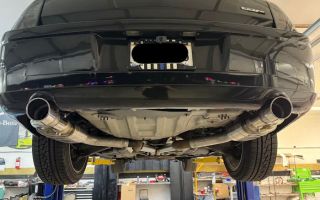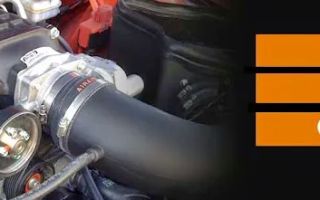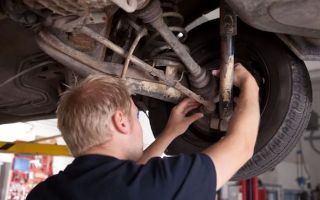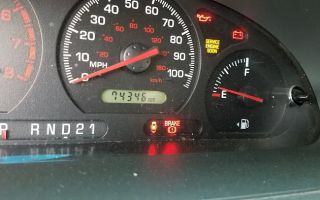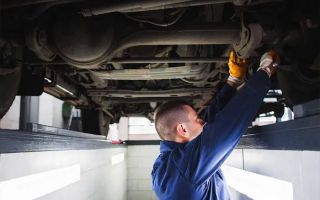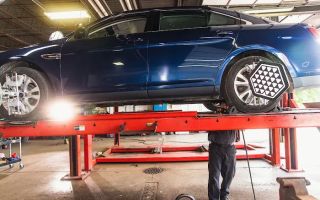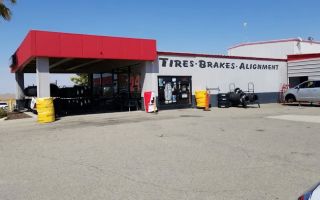Tips for Preventing Mechanical Failures During Long Drives
Long drives can be a dream, offering opportunities to explore new places and experience the open road. However, nothing can ruin a road trip faster than unexpected mechanical failures. Having faced this myself during a road trip, I’ve learned that preparation is key to ensuring your vehicle performs at its best. Whether you’re heading for a weekend getaway or an extended cross-country trip, it’s essential to consider several factors that can help you prevent car breakdowns and maintain your peace of mind during the journey. Here are some tried-and-tested tips for preventing mechanical failures during long drives.
- 1. Regular Maintenance Is Crucial
- 2. Keep the Engine in Tip-Top Shape
- 3. Never Underestimate Tire Care
- 4. Always Check the Fluid Levels
- 5. Take Care of Your Car Battery
- 6. Perform a Pre-Trip Inspection
- 7. Carry an Emergency Kit
1. Regular Maintenance Is Crucial
Before embarking on any long drive, the most important step is ensuring that your vehicle has undergone regular maintenance. I’ve learned the hard way that skipping a service appointment can lead to unexpected failures. A quick check-up can help identify potential issues before they escalate. This includes checking the engine, brakes, and all fluids, ensuring the air filters are clean, and confirming that your car’s battery is still in good condition.
One of the biggest mistakes I’ve made was neglecting the oil change before a long drive. The oil is the lifeblood of your engine, and old or low oil can lead to overheating and even engine failure. Make sure your car’s oil is changed regularly based on the manufacturer's recommendations, especially before embarking on a long road trip. If you’re unsure, it’s worth spending a little extra time and money to get a full service and inspection before you hit the road.

AutoZone Auto Parts
1900 N Lakewood Blvd, Long Beach, CA 90815, USA
2. Keep the Engine in Tip-Top Shape
The engine is the heart of your car, and ensuring it’s in good condition is one of the most critical aspects of a long drive. A well-maintained engine can make all the difference between a smooth ride and an unfortunate breakdown. The most common issues arise from things like dirty air filters, failing spark plugs, or low coolant levels.
In my experience, ensuring the engine runs smoothly requires checking the timing belts and fuel injectors. If either of these parts starts to degrade or fail, you might find yourself stuck in the middle of nowhere. It’s also a good idea to use premium fuel for better engine performance during a long drive, as it helps reduce the buildup of carbon deposits inside the engine. I recommend looking over your engine and having a professional do a deep dive check on any parts that could be prone to wear and tear.
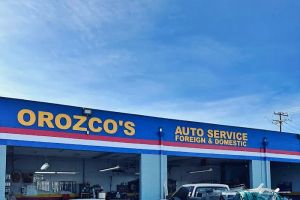
Orozco's Auto Service - Long Beach Blvd
3033 Long Beach Blvd, Long Beach, CA 90807, USA
3. Never Underestimate Tire Care
Tires are another aspect of vehicle maintenance that should never be overlooked. During long trips, you’ll likely be driving for hours on end, and ensuring that your tires are in good condition can save you from unwanted mishaps. I’ve had my fair share of tire blowouts, and I can tell you, they can be terrifying. The last thing you want is a flat or blown tire to ruin your trip.
Before you leave, make sure to inspect your tires for any visible damage, such as cracks, bulges, or punctures. I recommend checking tire pressure before each trip as well, especially since tire pressure can fluctuate with temperature changes. Low tire pressure increases the chances of a blowout, especially at higher speeds. If you're unsure about your tires, get them checked at a local service center before embarking on your journey.
4. Always Check the Fluid Levels
Fluids are essential for your car’s operation, and it’s vital to ensure your vehicle has the right amount of them. Overheating, engine failure, or power steering issues can all be linked to fluid levels that are too low. Every time I hit the road, I make sure that I have checked not just the oil, but also the coolant, brake fluid, and transmission fluid.
On a particularly hot summer day, I once ignored the fact that my coolant level was slightly lower than usual. About 200 miles into the drive, my engine started to overheat. This was a huge setback, but I learned the importance of regularly checking your car’s fluids. Not only does this prevent breakdowns, but it also improves your car's efficiency, helping to prevent issues down the road.
5. Take Care of Your Car Battery
Your car battery is what powers your vehicle’s electrical systems, and a dead battery is one of the most common reasons cars break down during long drives. I’ve had my fair share of frustrating moments when the battery dies, and it’s always at the worst possible time. Ensuring that your battery is healthy before embarking on your journey can save you from a headache.
I recommend testing your car battery at least a few days before your trip. If it’s more than three years old, it might be time to replace it. It’s also worth checking the battery terminals to ensure they are clean and free of corrosion. Corroded terminals can lead to weak battery performance and, in some cases, failure. Keeping the battery charged and clean ensures that you won’t run into trouble on the road.
6. Perform a Pre-Trip Inspection
Before any long drive, it’s wise to perform a thorough inspection of your car. I always make sure to check that my lights, wipers, and turn signals are functioning properly. A lot of people forget about their windshield wipers, but they are essential for visibility, especially when driving through rain or snow. Ensuring your wipers are in top condition and your windshield fluid is full is one simple way to ensure safety.
Additionally, be sure to check your car's exhaust system for any leaks, as this can lead to dangerous fumes inside the cabin. Taking care of these small details before your trip ensures you won’t be caught off guard by a seemingly minor issue that turns into something major.
7. Carry an Emergency Kit
No matter how well you prepare, accidents happen. That’s why I always make sure to carry an emergency kit during long drives. The last time I had a breakdown, I was so grateful to have packed a well-equipped kit, which included a flashlight, jumper cables, tire repair tools, a first-aid kit, and non-perishable snacks. These small items can make a huge difference in an emergency, and they give you peace of mind knowing you are prepared for the unexpected.
If you're planning a long drive, don't overlook the importance of having an emergency kit. It’s a simple yet effective way to ensure you're ready for whatever comes your way on the road. Not only can it provide immediate assistance, but it can also prevent you from needing to rely on roadside assistance in some situations.
In conclusion, preparing your vehicle for a long drive can make all the difference in ensuring a smooth and safe journey. Taking the time to check your car’s health, perform necessary maintenance, and equip yourself with an emergency kit can help avoid unexpected breakdowns. The next time you head out on the road, make sure you’re fully prepared to enjoy the ride, rather than worrying about car troubles!

